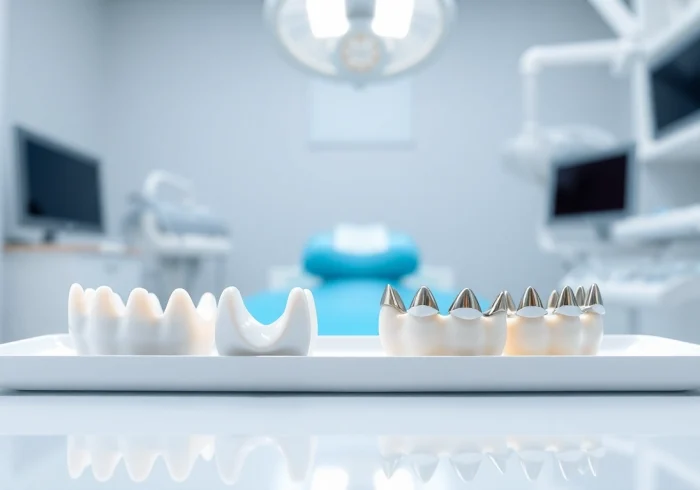Understanding Attachment Theory
What is Attachment Theory?
Attachment Theory, developed by British psychologist John Bowlby in the mid-20th century, focuses on the relationships and bonds between people, particularly the emotional ties that child develop with their caregivers. This theory posits that early interactions with caregivers not only nurture and protect children but also shape their emotional, social, and cognitive development throughout their lives. Bowlby conducted extensive research on the emotional and psychological effects of separation in children, leading to the formulation of a framework that helps to explain how these early relationships influence our behavior and mental health as adults.
Key Concepts in Attachment Theory
At the core of Attachment Theory are several key concepts that help explain the different ways people connect with others:
- Attachment Styles: Bowlby’s research identified different attachment styles including secure, anxious, avoidant, and disorganized. Each style reflects a unique pattern of behavior towards relationships and emotional regulation.
- Internal Working Models: This concept indicates that early experiences with caregivers create mental representations of self and others that guide expectations and interactions in future relationships.
- The Safe Haven and Secure Base Principles: Caregivers provide a safe haven during distress and a secure base for exploration. This dichotomy forms the foundation of healthy emotional development.
Importance of Attachment Styles
Attachment styles have far-reaching implications for adult relationships and mental health. For instance:
- Secure Attachment: Individuals with secure attachments tend to have healthy, trusting relationships and are generally more resilient to stress.
- Anxious Attachment: Those with anxious attachments may struggle with clinginess and fear of abandonment, often leading to relationship turbulence.
- Avoidant Attachment: Individuals displaying avoidant traits may distance themselves emotionally, leading to difficulties with intimacy.
- Disorganized Attachment: Often arising from trauma, this style can contribute to chaotic relationship patterns and emotional dysregulation.
The Role of an Attachment Theory Specialist
What Makes a Specialist Different?
An attachment theory specialist is a mental health professional who has focused their practice on understanding and addressing the impact of attachment styles on emotional health and relationships. Unlike traditional therapists, specialists delve deeper into the nuances of attachment patterns and how they manifest in adult behaviors, addressing the root causes of issues stemming from early relationships.
Training and Qualifications of an Attachment Theory Specialist
Attachment specialists often have advanced degrees in psychology, social work, or counseling, with specialized training in attachment theory and its applications. This training can include:
- Advanced certifications in modalities like Emotionally Focused Therapy (EFT) or Attachment-Focused Therapy.
- In-depth workshops or courses focused on child development, emotional regulation, and trauma-informed care.
- Practical experience working with diverse populations, allowing them to apply attachment theory in various contexts, such as individual therapy, couples counseling, and family therapy.
Benefits of Consulting a Specialist
Engaging with an attachment theory specialist provides numerous benefits:
- Personalized Assessment: Experts can assess your attachment style and identify patterns in your relationships.
- Targeted Interventions: Specialists employ tailored techniques aimed at addressing specific attachment wounds and challenges.
- Deeper Insights: They offer a profound understanding of how your past influences your present, which can lead to transformative healing.
- Safe Therapeutic Environment: A nuanced approach allows individuals to explore painful memories and establish healthier patterns in an empathetic space.
How to Choose the Right Specialist
Assessing Credentials and Expertise
When seeking an attachment theory specialist, it is crucial to assess their qualifications:
- Educational Background: Verify their degrees and certifications related to psychology and attachment theory.
- Relevant Experience: Look for practitioners with substantial experience in dealing with attachment-related issues.
- Specialization: Ensure they have training in specific therapeutic modalities that resonate with your needs.
Questions to Ask During the Initial Consultation
During your first meeting, consider asking the following questions to gauge compatibility:
- What is your approach to therapy regarding attachment theory?
- Can you describe your experience working with clients who have similar concerns?
- How do you assess a client’s attachment style?
- What methods do you use to facilitate change in attachment-related issues?
Indicators of a Good Fit
Finding the right attachment specialist involves more than credentials. Here are key indicators to ensure a good match:
- Comfort Level: You should feel safe and respected during sessions.
- Collaborative Approach: A willingness to work together to create goals for therapy.
- Clear Communication: The specialist should articulate their methods and framework in ways you understand.
Common Techniques Used by Attachment Specialists
Emotionally Focused Therapy (EFT)
Emotionally Focused Therapy is a popular approach among attachment theory specialists. Developed by Dr. Sue Johnson, EFT emphasizes the role of emotional experiences in the therapeutic relationship, helping clients explore and understand their attachment patterns within relationships. This method is particularly effective for couples experiencing distress, as it builds emotional connectivity and fosters secure attachments by encouraging vulnerability and sharing of feelings.
Play Therapy and Attachment-Based Approaches
Especially in working with children, attachment specialists often employ play therapy as a means of communication. This approach allows children to express feelings and thoughts through play, enabling the therapist to observe their attachment behaviors in a non-threatening manner. Additionally, parents can learn how to foster secure attachments through family-focused interventions that emphasize relational dynamics.
Behavioral and Cognitive Techniques
Attachment specialists may utilize cognitive-behavioral techniques to help clients identify and reframe negative thoughts related to their attachment style. This method can be effective in mitigating anxiety, shame, or avoidance behaviors stemming from a person’s attachment history. By developing healthier thought patterns, clients can enact better behavior in future relationships.
Growing Awareness of Attachment Theory
Current Trends in Therapy and Mental Health
The mental health landscape is gradually embracing attachment theory as a cornerstone of treatment. Awareness is growing about how our early relationships profoundly impact mental health, leading to a heightened interest in attachment-based approaches across various therapeutic practices. Many professionals are undergoing training in attachment theory to diversify their skill sets and enhance therapeutic outcomes.
Resources for Continued Learning
For those interested in deepening their understanding of attachment theory, several resources are available:
- Books: Titles like “Attached” by Amir Levine and Rachel Heller provide accessible insights into attachment styles.
- Online Courses: Platforms like Coursera and Udemy offer courses on attachment theory relevant to mental health professionals and laypersons alike.
- Podcasts: Many therapists and researchers discuss attachment theory in various podcasts, making it easy to digest complex ideas.
Engaging with the Community
Joining professional organizations or online forums dedicated to attachment theory can enhance learning and networking opportunities. Being part of a community allows for the sharing of experiences and best practices, fostering a richer understanding of how to apply attachment principles in therapeutic settings. Furthermore, forums can also serve as a space for those affected by attachment issues to connect and share their journeys to healing.



